In 2015 Washington carried out the State Auditor’s review of Washington’s workforce development system. This report was published as part of a series that focuses on audit results in relation to CTE. The audit brought to light that the current CTE classes in Washington’s public schools have the potential to be more closely connected with the state’s labor market.
The following four areas of improvement are discussed, with the guiding goal of closing the skills gap and expanding educational experiences for students:
- Improve career guidance given to students, and provide it in a classroom setting beginning in the 7th or 8th grade;
- Strengthen employer engagement to better align CTE programs and courses with high-wage industry-needed skills;
- Update the list of high-demand programs, strengthen the review of local labor demand data and clarify laws to help reduce the skills gap and
- Expand the number of CTE dual-credit opportunities to increase the number of pathways from high school to college.
Four state agencies in Washington administer CTE programs, and this report highlights the importance of inter-agency coordination in order to deliver the best outcomes for students and the business community.
Leveraging the Every Student Succeeds Act to Improve Educational Services in Juvenile Justice Facilities
A report by the American Youth Policy Forum details the ways in which the Every Student Succeeds Act (ESSA) provides an opportunity for states to implement accountability measures that ensure incarcerated youth in long-term juvenile justice facilities can pursue education pathways that lead to positive workforce outcomes. Instances of successful accountability measures in Indiana, Florida and Massachusetts are highlighted.
The following three priorities for states are addressed:
- Data collection and information sharing between state and local education and juvenile justice agencies;
- An Accountability system that includes educational services within long-term juvenile justice facilities and
- Measures to hold these educational programs and schools accountable.
States have the chance to utilize ESSA in a way that will better the educational and workforce projections for those in long-term juvenile justice facilities. CTE opportunities have gained attention from juvenile justice facilities as an avenue for youth to successful educational and workforce outcomes. Policymakers and educators can work together to implement an accountability system that emphasizes such educational programs.
Odds and Ends
The Education Commission of the States released three Policy Snapshots in response to the persistent challenge of teacher shortages. These Snapshots cover the following strategies to strengthen the teacher pipeline:
The American Youth Policy Forum shared a brief on opportunities for alignment with ESSA and the Individuals with Disabilities Education Act that would promote college and career readiness for all students.
The Center for American Progress explored the relationship between college, career and life readiness and high school graduation requirements. Their report analyzes the following questions:
- Are high school graduation requirements for a standard, nonadvanced diploma aligned with requirements for admission to the state’s public university system?
- Are high school graduation requirements aligned with college and career readiness benchmarks and indicators of a “well-rounded” education – one that includes coursework and other educational experiences in, among other topics, computer science, engineering, health, music and technology?


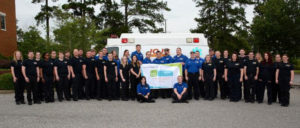 Technical Education (EMTE) program at Jones County Junior College, located in rural Ellisville, MS exemplifies excellence. All learning – in the classroom and workplace – is facilitated by knowledgeable experts leading to program graduates prepared in Health Science careers in areas of critical shortage in rural Southeast Mississippi.
Technical Education (EMTE) program at Jones County Junior College, located in rural Ellisville, MS exemplifies excellence. All learning – in the classroom and workplace – is facilitated by knowledgeable experts leading to program graduates prepared in Health Science careers in areas of critical shortage in rural Southeast Mississippi.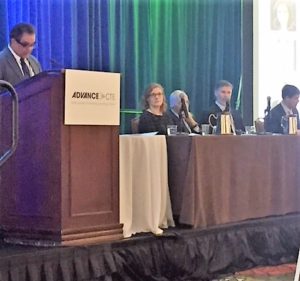 Within these themes, a number of interesting research questions emerged. In regards to student outcomes, for example, multiple groups inquired about CTE’s impact on student debt and whether it is actually accurate to make the claim that CTE program completion is associated with less student debt. While certain programs, such as the
Within these themes, a number of interesting research questions emerged. In regards to student outcomes, for example, multiple groups inquired about CTE’s impact on student debt and whether it is actually accurate to make the claim that CTE program completion is associated with less student debt. While certain programs, such as the 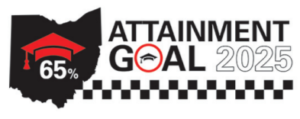 Similarly, in Ohio, three community colleges
Similarly, in Ohio, three community colleges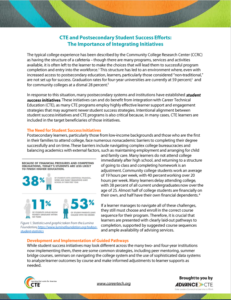 In response to these results, many community colleges have worked with national organizations like CCRC and the American Association of Community Colleges, among others, to develop student success initiatives, focused on increasing equity and degree completion. These initiatives include numerous reforms of college advising and student support services to ensure that postsecondary learners undergo a seamless journey throughout their experience and complete college with a meaningful degree.
In response to these results, many community colleges have worked with national organizations like CCRC and the American Association of Community Colleges, among others, to develop student success initiatives, focused on increasing equity and degree completion. These initiatives include numerous reforms of college advising and student support services to ensure that postsecondary learners undergo a seamless journey throughout their experience and complete college with a meaningful degree.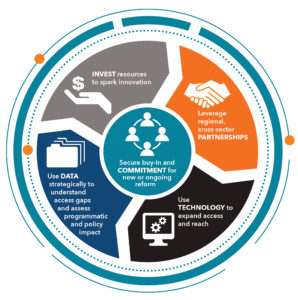
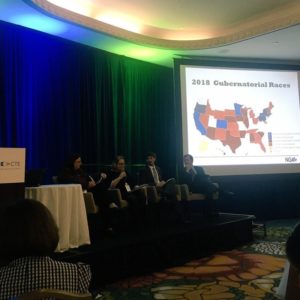 University’s Center on Education and the Workforce who discussed what “good jobs” are available – specifically those that pay a sustaining wage, offer pathways to advancement and are accessible to individuals with some college but less than a four-year degree – and who currently has access those good jobs. Through a moderated discussion with Chauncy Lennon of JPMorgan Chase & Co., who funded the “
University’s Center on Education and the Workforce who discussed what “good jobs” are available – specifically those that pay a sustaining wage, offer pathways to advancement and are accessible to individuals with some college but less than a four-year degree – and who currently has access those good jobs. Through a moderated discussion with Chauncy Lennon of JPMorgan Chase & Co., who funded the “